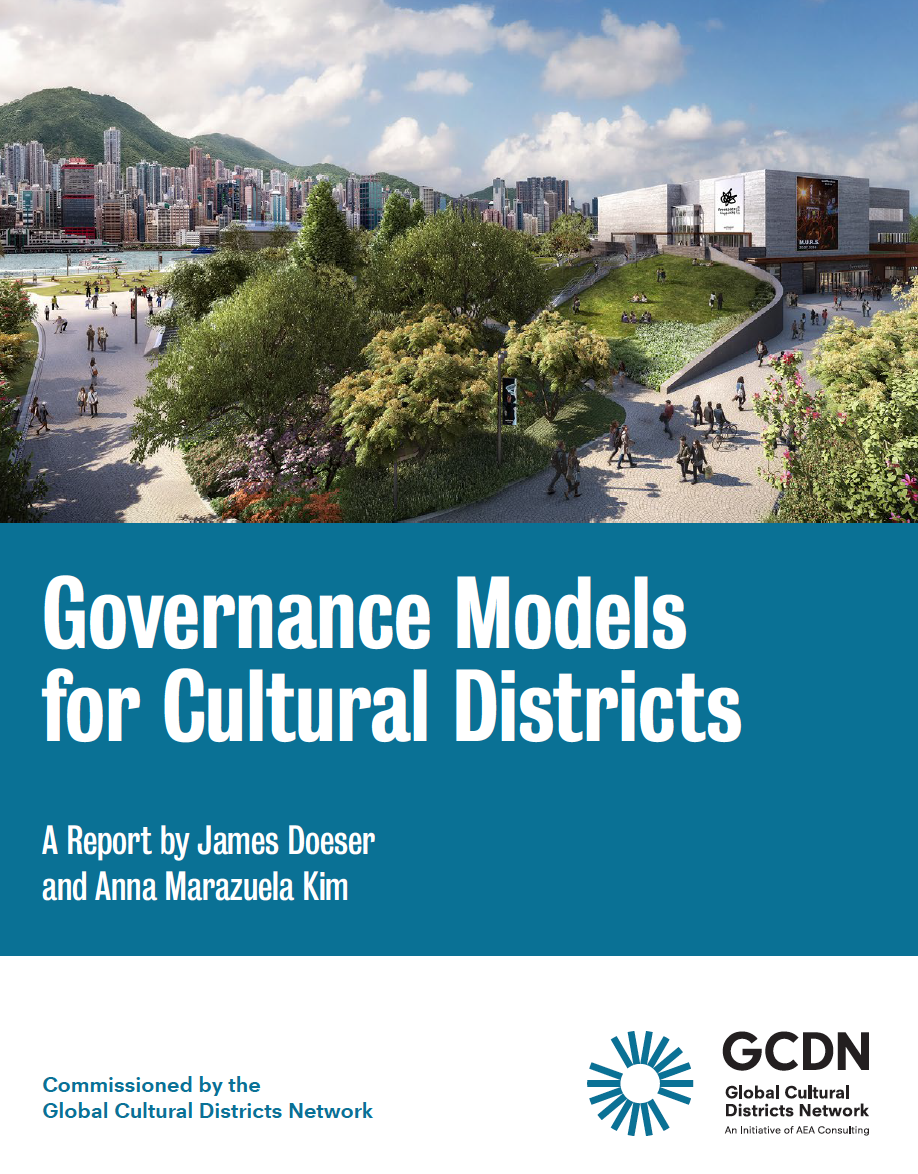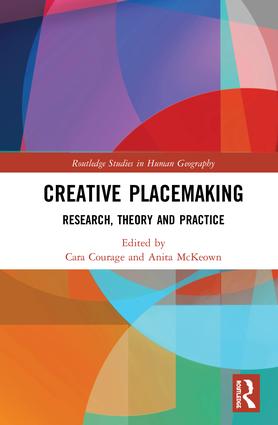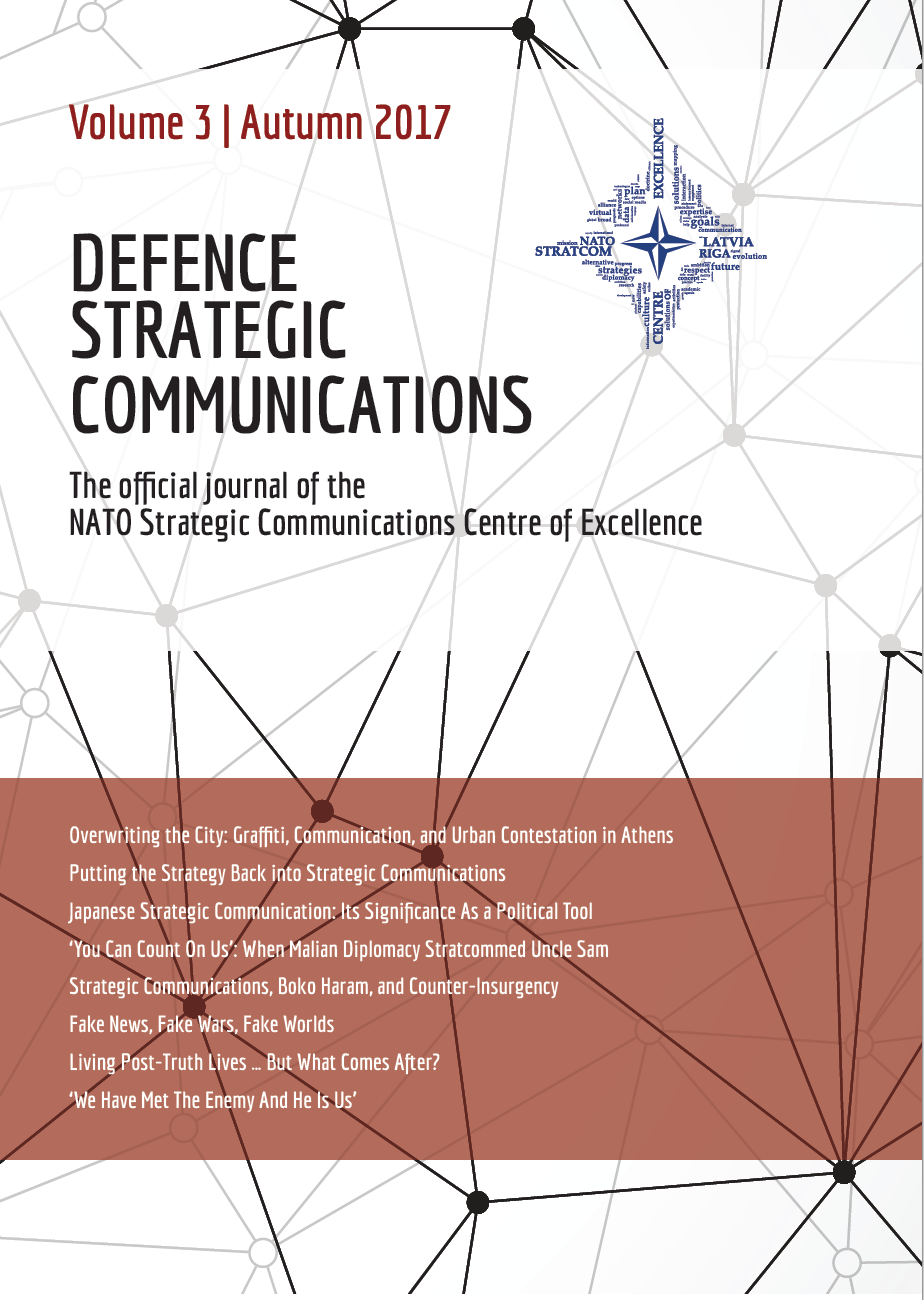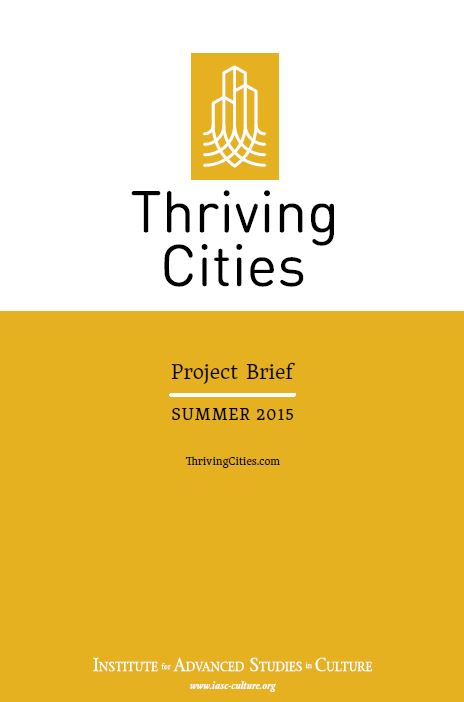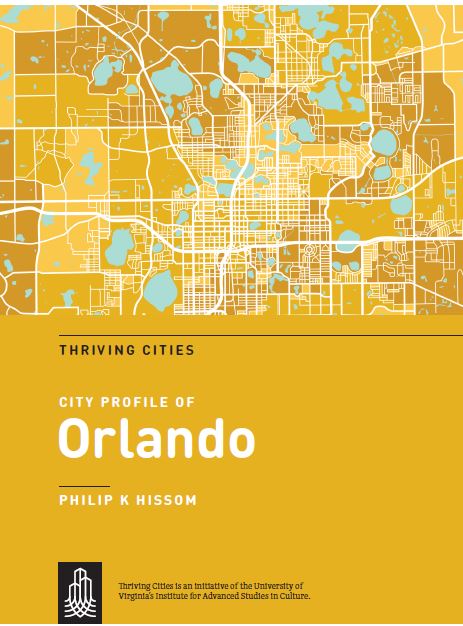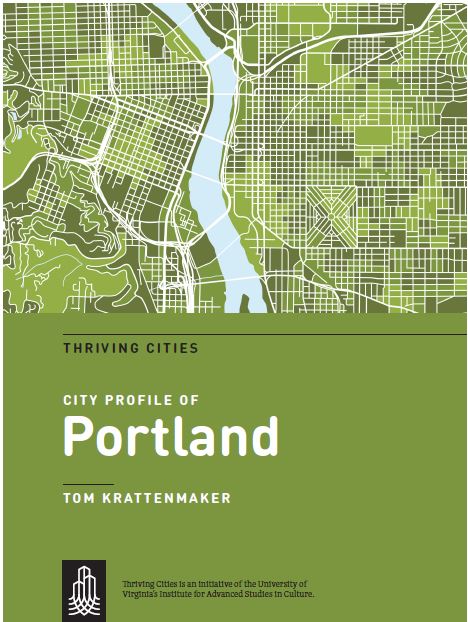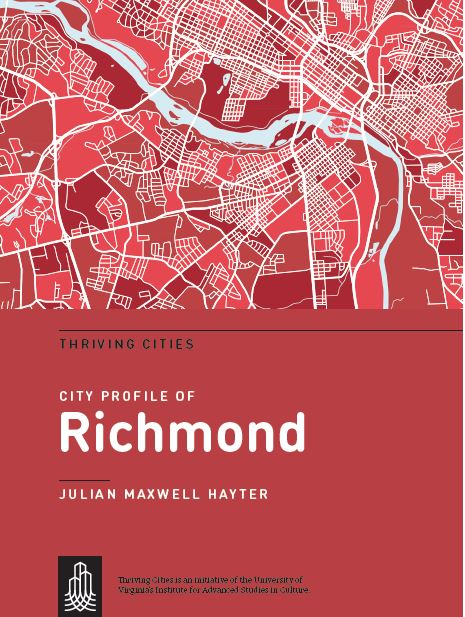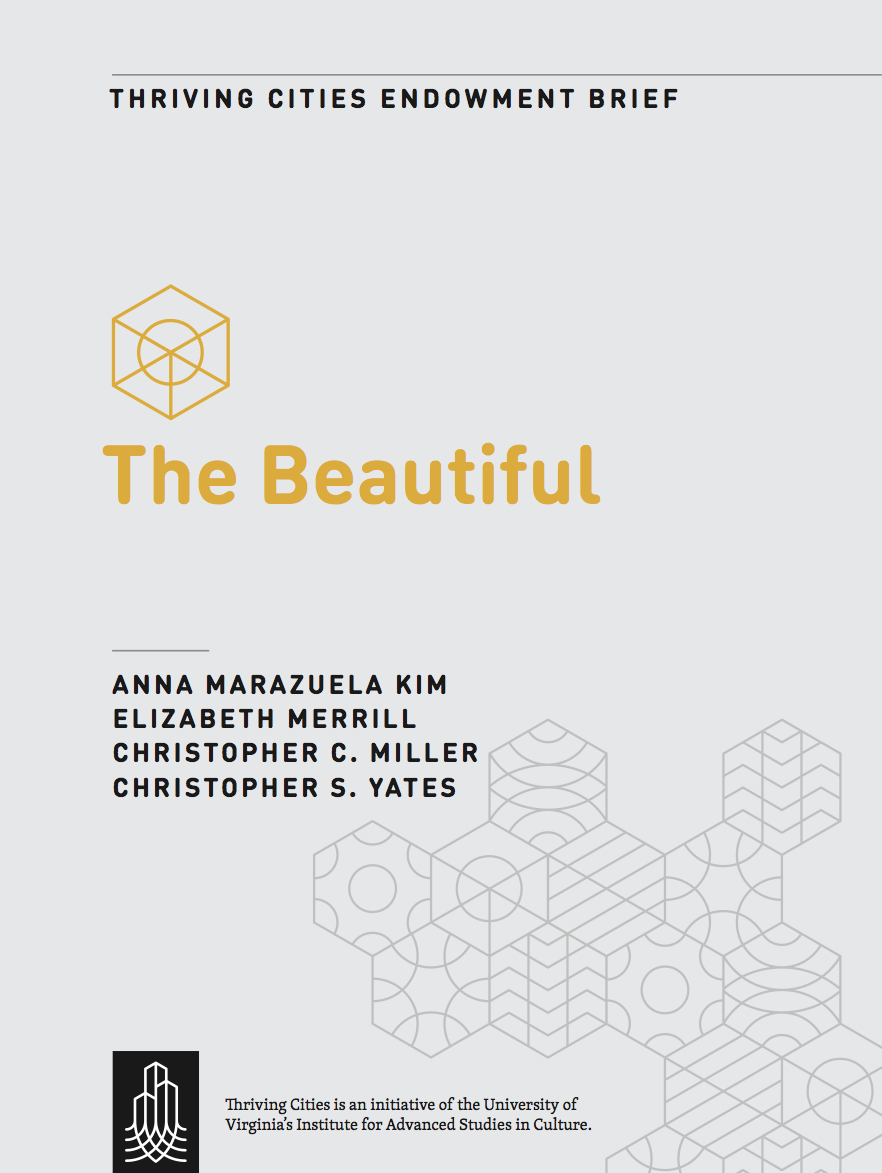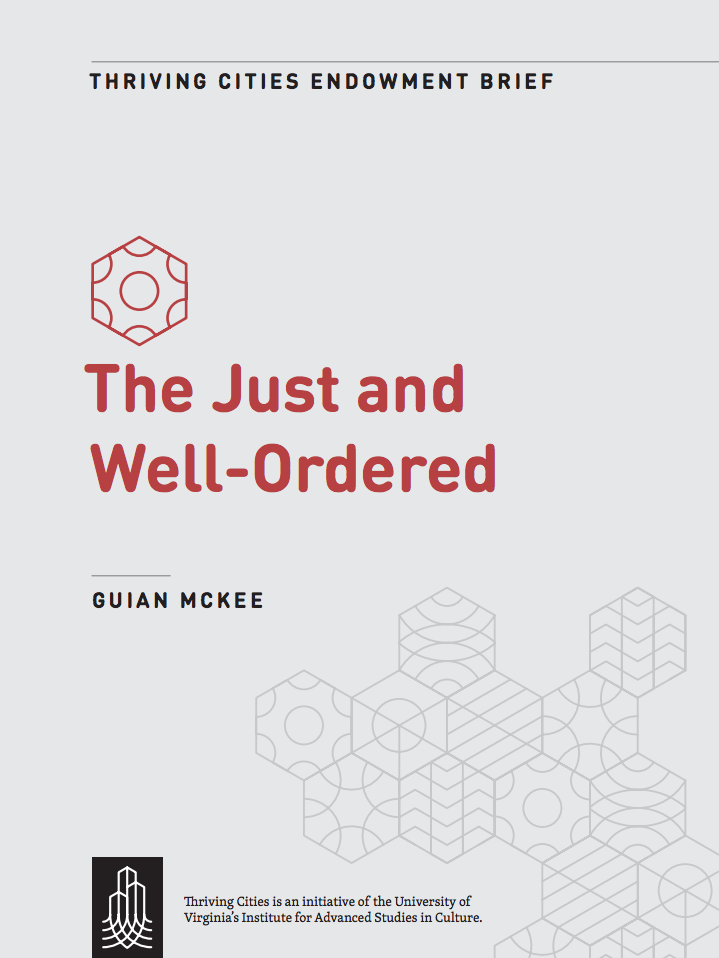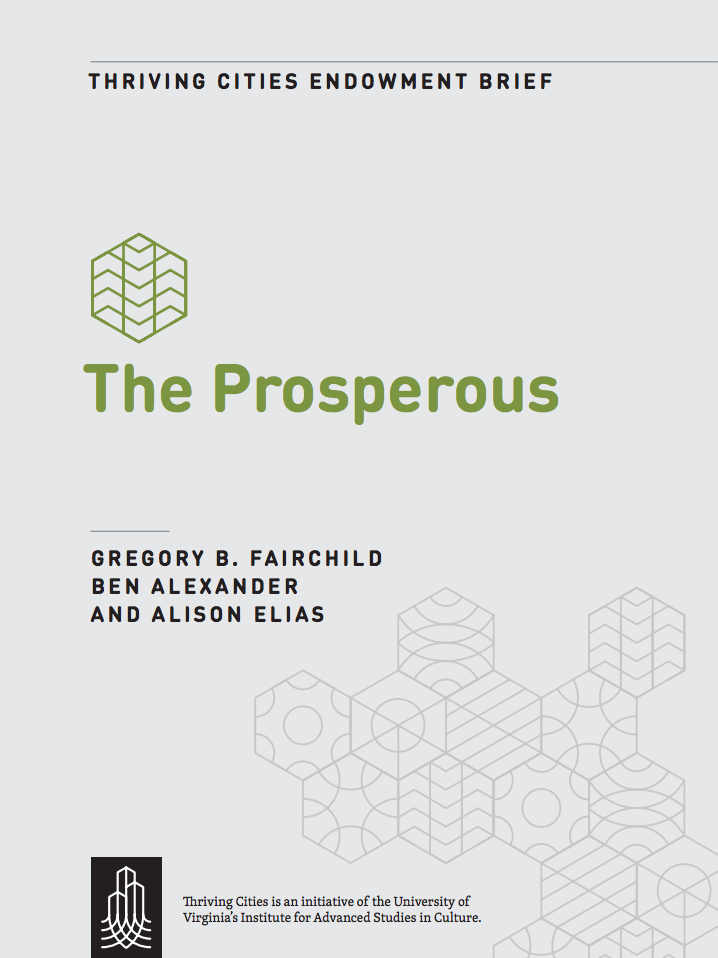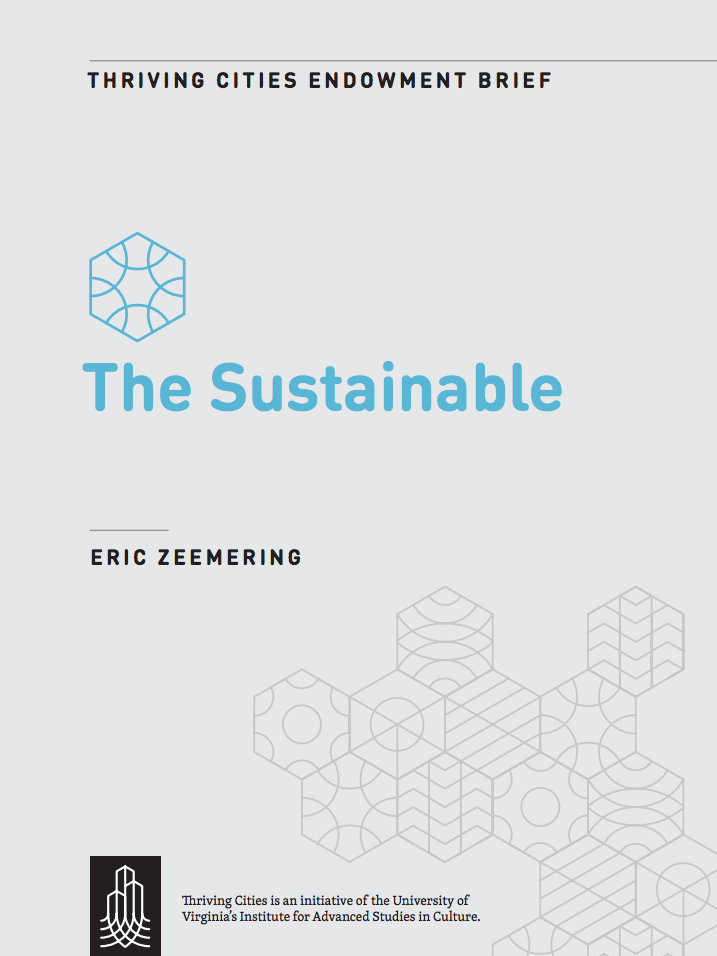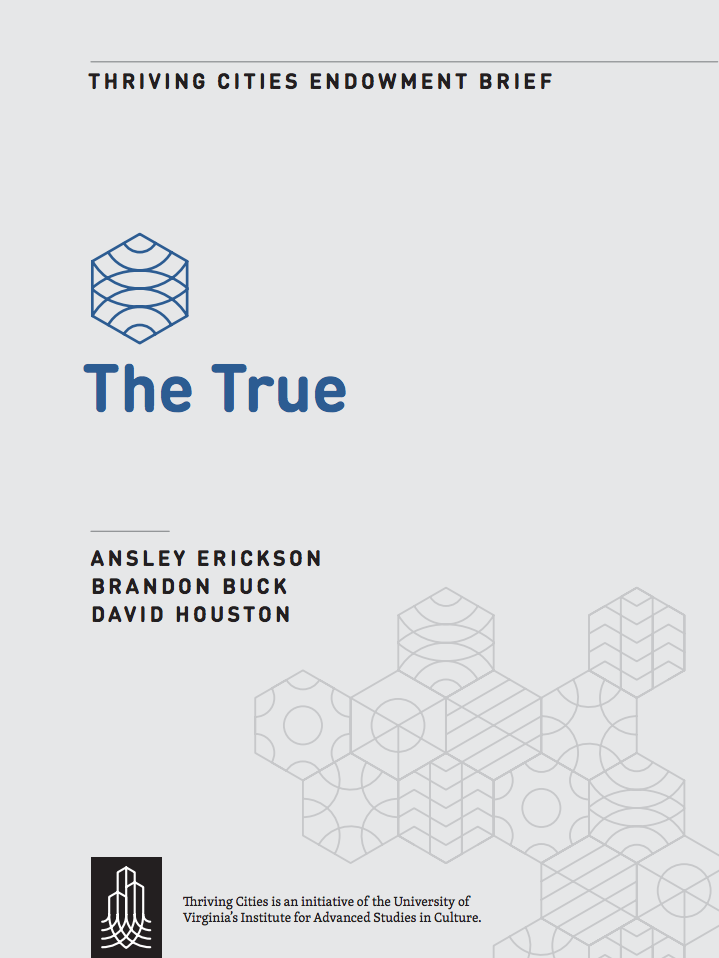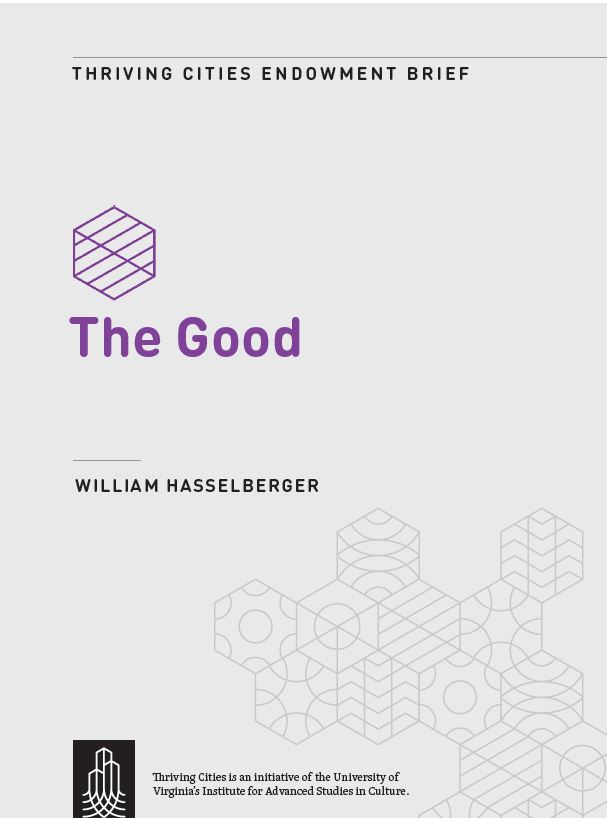Thriving Cities Lab
Research Director: Ty Buckman
By 2050, three out of every four people will live in cities. For the first time in its history, humanity is a predominantly urban species.
This fact raises enormous questions for the prospects of human thriving in our time. With cities becoming ground-zero for virtually every consequential challenge humanity faces, from demographic and technological disruption to economic dislocation and disparity, to political and civic fracture, cities are likewise becoming the principal forging grounds for solutions. What it means and takes to thrive in 21st century urban environments—what will count as moral and material progress—is from here forward one of the grand challenges of the present era. A grand challenge that will be as much cultural and ethical as it will be political, economic, or technological. The next thirty years will be crucial for how well we will collectively meet this great societal challenge, both at home and abroad.
The Thriving Cities Lab exists to understand the nature of this epochal transformation, critically engage its consequences for human thriving, and equip scholars and commu- nities with the intellectual resources necessary for constructively meeting its demands and opportunities.
Building upon two decades of cultural analysis at the Institute for Advanced Studies in Culture, and on field research in a score of cities across the United States, the Lab’s work is organized around the study of the human ecologies of contemporary urban life, with a special focus on the changing cultural and social paradigms of wellbeing and civic life.
The Lab’s research is organized around three primary expressions:
- The Survey of America’s Civic Infrastructure: a series of sector-based field scans focus- ing on the primary institutions, associations, places, and policies that enable people to connect with one another, bridge difference, and address shared challenges in 21st century urban contexts.
- Measuring the Social Good Project: ongoing research into how we define and assign value to the things that matter most for individual and collective thriving, but are hard- est to assess—from the metrics we choose to the methods we use to measure impact.
- Building Vibrant Human Ecologies Project: community-sponsored research around pressing challenges and concerns specific to local contexts. These partnerships not only refine the Lab’s human ecology framework, but also help develop new methods for applying these tools across different audiences and contexts.
Field Guide for Urban University-Community Partnerships
This Field Guide is designed to be a ready resource for those interested in strengthening their home institution’s commitment to, and practice of, university-community partnerships.
Learn moreGovernance Models of Cultural Districts
This report, commissioned by the Global Cultural Districts Network (GCDN), draws on primary research and a literature review to capture good practices, and identifies which stakeholders should be “at the table” for informed and effective decision making and oversight.
Learn moreTowards Beauty and a Civics of Place: Notes from the Thriving Cities Project
Thriving Cities Lab Director Joshua Yates and Anna Marazuela Kim draw from the Thriving Cities Project to discuss creative placemaking research in a book presenting grassroots to top-down practices and socially engaged, situated artistic practice.
Learn moreOverwriting the City: Graffiti, Communication, and Urban Contestation in Athens
To date, most discussions and analyses of strategic communications within the context of International Relations and Security Studies focus on the linguistic realm. Those that do recognise the power and role of images in these domains, particularly as they reflect upon the contemporary image wars waged by IS and other insurgent groups, tend to focus on the virtual realm of social media and globalized news networks. This article aims instead to articulate a methodological framework for understanding the force and potential of a distinctively spatial and material form of communication: graffiti. Taking Athens as a case study, the article articulates graffiti’s role as a form of strategic communications in areas of social and political crisis, and further suggests its value as a non-violent means of negotiating conflict in areas with limited avenues for democratic expression.
Learn moreEndowment Brief: The Beautiful
It is our purpose in this brief to reclaim and affirm beauty’s foundational role as an Endowment of the city.
Learn moreEndowment Brief: The Just and Well-Ordered
The Just and Well-Ordered refers to the manner in which the institutions and practices of political and civic life contribute to or hinder the capacity of all citizens to thrive.
Learn moreEndowment Brief: The Prosperous
This endowment brief serves to examine the role and relevance of prosperous endowments in cities and metropolitan areas, to critique the current discourse on economic progress, and to assist in developing a more integrated notion of what it means to progress, economically and otherwise.
Learn moreEndowment Brief: The Sustainable
Within the Thriving Cities framework, the sustainable city is one that promotes both environmental and human well-being.
Learn moreEndowment Brief: The True
As defined by the Thriving Cities Project, the endowment of “The True” concerns how the production and distribution of knowledge can or do relate to thriving by contributing to city and metropolitan life in three intersecting areas: culture, democracy, and the economy.
Learn moreThriving Cities Endowment Brief: The Good
This endowment brief encompasses two broad and complex topics in ethical thought:
human flourishing, on the one hand, and moral character and its development, on the
other. More pithily: the good life and the morally good life.
Articles
Overwriting the City: Graffiti, Communication, and Urban Contestation in Athens
To date, most discussions and analyses of strategic communications within the context of International Relations and Security Studies focus on the linguistic realm. Those that do recognise the power and role of images in these domains, particularly as they reflect upon the contemporary image wars waged by IS and other insurgent groups, tend to focus on the virtual realm of social media and globalized news networks. This article aims instead to articulate a methodological framework for understanding the force and potential of a distinctively spatial and material form of communication: graffiti. Taking Athens as a case study, the article articulates graffiti’s role as a form of strategic communications in areas of social and political crisis, and further suggests its value as a non-violent means of negotiating conflict in areas with limited avenues for democratic expression.
Learn moreReports
Governance Models of Cultural Districts
This report, commissioned by the Global Cultural Districts Network (GCDN), draws on primary research and a literature review to capture good practices, and identifies which stakeholders should be “at the table” for informed and effective decision making and oversight.
Learn moreEndowment Brief: The Beautiful
It is our purpose in this brief to reclaim and affirm beauty’s foundational role as an Endowment of the city.
Learn moreEndowment Brief: The Just and Well-Ordered
The Just and Well-Ordered refers to the manner in which the institutions and practices of political and civic life contribute to or hinder the capacity of all citizens to thrive.
Learn moreEndowment Brief: The Prosperous
This endowment brief serves to examine the role and relevance of prosperous endowments in cities and metropolitan areas, to critique the current discourse on economic progress, and to assist in developing a more integrated notion of what it means to progress, economically and otherwise.
Learn moreEndowment Brief: The Sustainable
Within the Thriving Cities framework, the sustainable city is one that promotes both environmental and human well-being.
Learn moreEndowment Brief: The True
As defined by the Thriving Cities Project, the endowment of “The True” concerns how the production and distribution of knowledge can or do relate to thriving by contributing to city and metropolitan life in three intersecting areas: culture, democracy, and the economy.
Learn moreThriving Cities Endowment Brief: The Good
This endowment brief encompasses two broad and complex topics in ethical thought:
human flourishing, on the one hand, and moral character and its development, on the
other. More pithily: the good life and the morally good life.
Surveys
Field Guide for Urban University-Community Partnerships
This Field Guide is designed to be a ready resource for those interested in strengthening their home institution’s commitment to, and practice of, university-community partnerships.
Learn moreTy Buckman
- Director
- Senior Fellow


